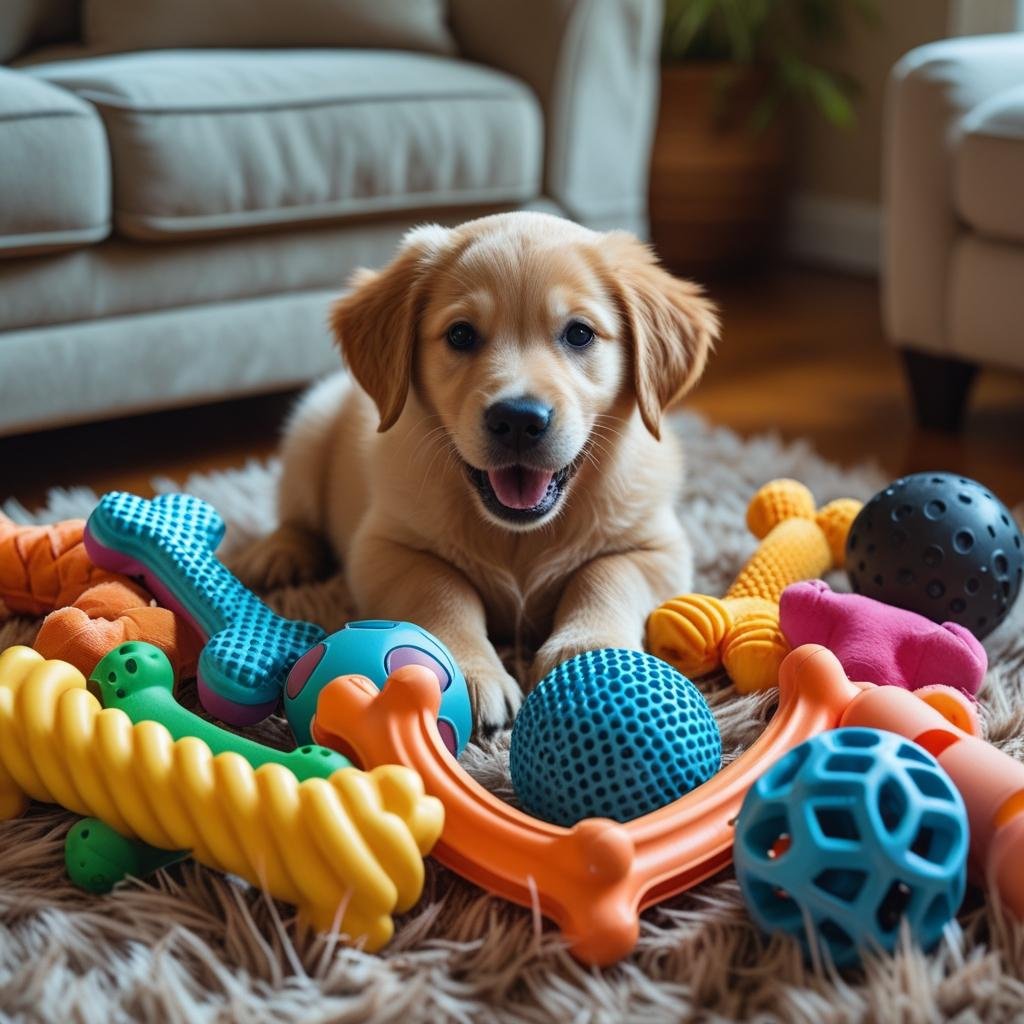
ULTIMATE GUIDE TO DOG CHEW TOYS
Share
Choosing the right one for your dog.
Choosing the right chew toys for your furry friend can feel like navigating a minefield of squeaks, textures, and durability claims. As a fellow dog lover, I understand the struggle! You want something safe, engaging, and long-lasting, but every dog is different. This guide is here to help you navigate that toy aisle with confidence, tailored to your dog's breed and chewing style.
Understanding Your Dog’s Chewing Style :
First, let's figure out what kind of chewer you have. Is your dog a:
- Gentle Gnawar: They enjoy a leisurely chew, often savouring the texture and flavour. Think of it as a canine connoisseur.
- Moderate Muncher: They put in a good effort, chewing regularly but not obsessively. These dogs need toys that can withstand consistent chewing.
- Power Chewer/Destroyer: These are the pups who see a chew toy as a personal challenge. They’re on a mission to dismantle, dissect, and devour. Extra durable is key here!.
I remember when I brought Buster home, a seemingly innocent Golden Retriever puppy. Within weeks, my slippers, the coffee table leg, and even a remote control fell victim to his 'power chewing.' That's when I knew I needed to up my chew toy game!
Breed-Specific Considerations :
Certain breeds are naturally predisposed to certain chewing habits. Here's a quick rundown:
- Retrievers (Golden, Labrador): Typically moderate to power chewers. Durable rubber toys, rope toys, and even some plush toys (if closely supervised) can work.
- Terriers (Jack Russell, Border Terrier): Often energetic and determined chewers. Look for tough rubber or nylon toys specifically designed for strong chewers.
- Herding Breeds (Border Collie, Australian Shepherd): Intelligent and active, they need toys that provide mental stimulation. Puzzle toys filled with threats, or durable chew toys with interesting textures can keep them engaged.
- Small Breeds (Chihuahua, Yorkshire Terrier): Gentle to moderate chewers. Focus on smaller, lighter toys that won’t overwhelm them. Soft rubber or plus toys designed for small dogs are good options.
- Bulldogs & Boxers: Known for their powerful jaws. Extreme durability is a must. Consider toys made from ultra-tough nylon or reinforced rubber.
Choosing the Right Materials :
The material of the chew toy matters just as much as the style.
- Rubber: A popular choice for it’s durability and versatility. Look for natural orthose labeled ‘non-toxic’.
- Nylon: Extremely durable, often infused with flavour to keep dogs interested. Choose the right size and monitor for sharp edges.
- Rope: Great for dental health and tug-of-war, but supervise closely. Frayed ends can be ingested and cause problems.
- Plush: Best for gentle chewers or as comfort toys. Avoid those with small parts that can be easily swallowed.
Important Note: Always supervise your dog with new toys, especially if they are power chewers. Discard any toy that becomes damaged or broken.
My Top Picks :
- KONG Classic: Versatile, durable, and can be stuffed with treats.
- Nylabone DuraChew: Great for strong chewers, helps with dental health.
- West Paw Zogoflex: Eco-friendly and incredibly tough.
- Benebone Wishbone: Infused with real bacon flavour.
Safety First :
- Size Matters: Choose toys appropriate for your dog’s size to prevent choking.
- Avoid Small Parts: Remove ribbons, tags, or anything that can be easily swallowed.
- Inspect Regularly: Check toys frequently for damage and replace them as needed.
- Supervise Play: Always supervise your dog with new toys, especially power chewers.
Making the Right Choices :
Ultimately, the best chew toy is one that's safe, durable, and keeps your dog engaged. Don't be afraid to experiment with different types and materials until you find the perfect match. And remember, a tired dog is a good dog! So, choose toys that encourage healthy chewing habits and plenty of playtime.
Next Steps :
Now that you're armed with this knowledge, head to your local pet store (or your favorite online retailer) and start exploring! Pay attention to your dog's preferences and chewing habits, and don't be afraid to ask for recommendations from other dog owners or your veterinarian.
